“Gaining Confidence from the Edgy & Strange”
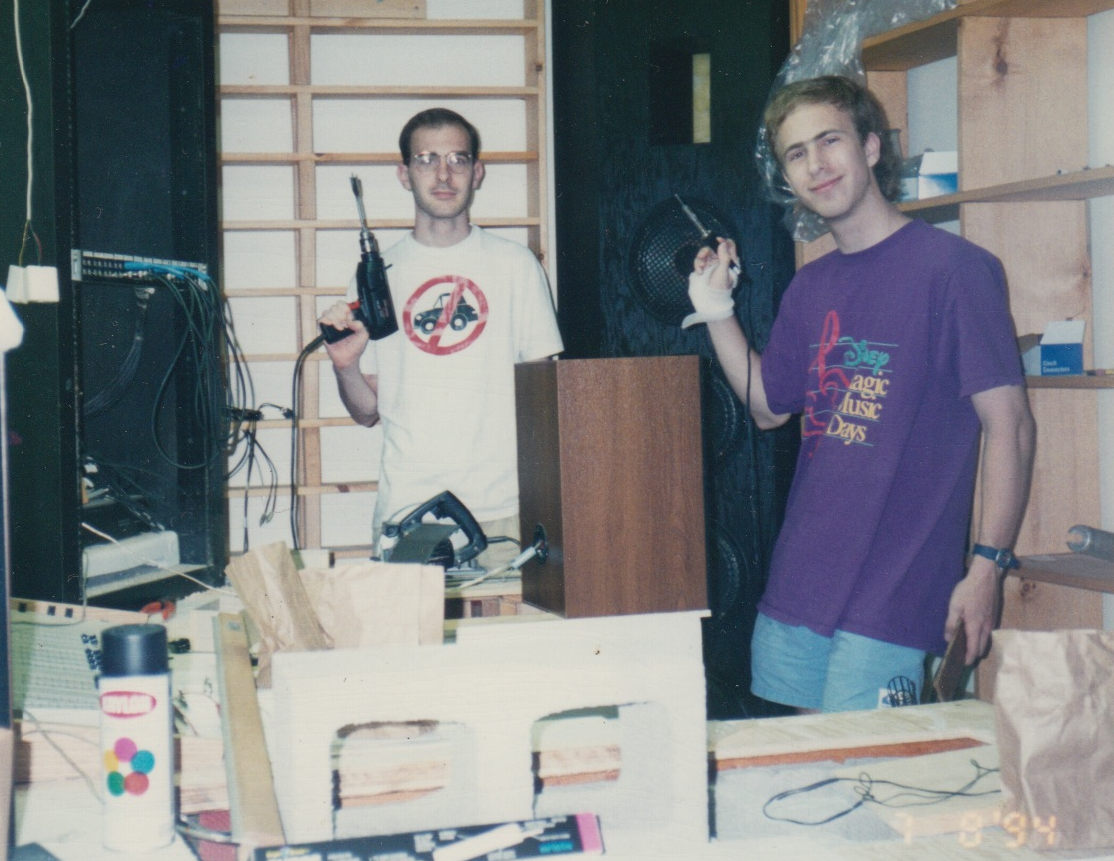
(L-R: John Monroe ’95 & Jon Solera (Snitow) ’97, Studio C renovations)
[By John Monroe ’95.]
WPRB was such a huge part of my life as an undergraduate that it’s really difficult to even know where to begin. I first heard about the station in August 1991, during Outdoor Action, the week-long backpacking trip that used to be – and probably still is – recommended to incoming students as a way of forming preliminary friendships and thereby taking some of the social edge off the first weeks of freshman fall. One of the group leaders was a DJ at WPRB, jazz if I remember right, and told me about how the show’s programming worked, with classical in the morning, jazz at mid-day, and rock in the afternoon and evening, followed by various specialty shows at night.
It hadn’t occurred to me that Princeton would have a radio station – one that “could be heard in Philly,” no less, as I was told – and from the moment I first heard about it, I was intrigued. All through high school, I’d listened to “twentieth-century classical” music pretty much exclusively. I even looked composers up in Who’s Who and sent them fan mail (you’d be amazed who responded: Cage, George Crumb, Lutoslawski, Stockhausen, Tippett, Berio). At the same time, though, in I suppose typical geeky teenager fashion, I felt this odd social shame about how much I loved it. For me, the great revelation of college was discovering that one could find people who appreciated idiosyncrasies of this kind, rather than turning them into some kind of stigma.
Anyone who knows me knows that I’m not much of an outdoorsman. A week of no showers, with the stars for a roof and leaves for toilet paper, I discovered, is a very long time. Too long for me, at any rate. While I did make some friends on Outdoor Action, my clearest memory is of trudging with the group through one of those torrential Delaware Water Gap summer downpours, soaked to the skin with no prospect of ever drying off, lost in planning what I had decided would be my first classical radio show. I can’t remember the exact sequence, but Michael Tippett’s First Symphony was the centerpiece of the first half – something tonal in deference to people just waking up – and Carl Ruggles’ Sun Treader had some role in the second half, presumably because I figured by that point everyone would be too relaxed by their morning commutes, and could therefore benefit from a salutary dose of striving angst.
When I got back on campus, I immediately got in touch with the classical programming director at WPRB and volunteered.
At the start of fall semester, I threw myself into “regular” classical, not only taking on a 6AM shift but also subbing like a maniac. I have no idea where I found the energy. To me, the whole enterprise was very serious business. I’d be up at 4:30, shower, and walk from my room in Forbes to Holder via the Wawa, where I’d pick up a giant cup of herb tea – I hadn’t even discovered coffee at that point! – and a cinnamon twist donut from the baked-goods case. At the studio, I’d let myself into the dark warren of rooms in the Holder basement and dig around the library, lovingly planning out my two and a half hours, figuring in time for station IDs, PSAs, ads and promos, etc. There was a certain half musty half dry smell that came from the combination of electronic equipment, ancient institutional carpeting, basement, and vast numbers of LP jackets and jewel boxes. I learned how to cue CDs and LPs, how to work the eight-track cartridge machine, to “pot up” and “pot down,” to arrange it so multi-movement symphonies came to an end at a moment precisely 10 seconds before the ABC News satellite feed began, so I could fit in an announcement of piece title, conductor and orchestra.
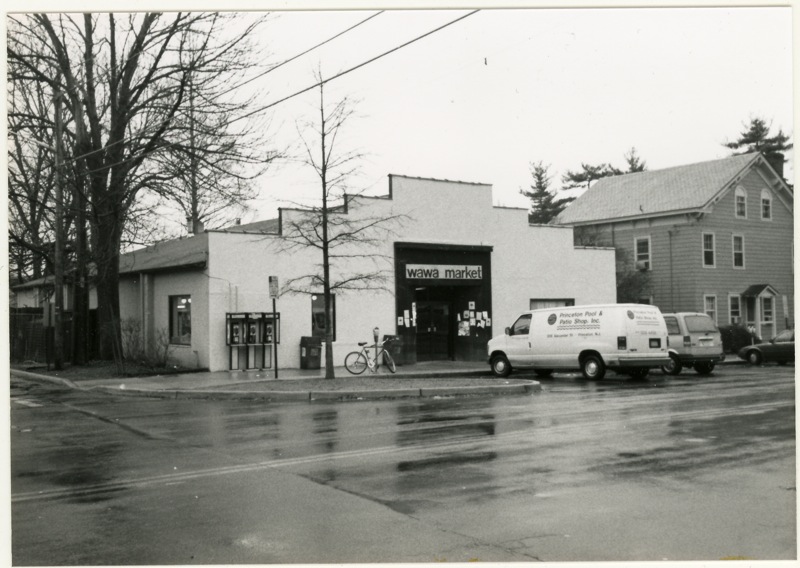 (The old Wawa. Home of pre-dawn breakfasts for generations of WPRB DJs.)
(The old Wawa. Home of pre-dawn breakfasts for generations of WPRB DJs.)
I also quickly developed a desperate itch to do an evening specialty show devoted to the most “difficult” twentieth-century classical music. During those long days trudging around the wilderness on Outdoor Action the possibility had first occurred to me, but I’d assumed that the programming staff at WPRB would not be interested in something so far from the mainstream. The extent to which I had misjudged the station’s culture became very clear in the first months of the semester. That was the fall of Nirvana’s Nevermind, the album that transformed “grunge” into the default sound of popular music, starting a temporary earthquake of taste that changed the game for a lot of bands that WPRB DJs had begun championing, as they said, “way before it was cool.” I’ve never had much time for rock – strong backbeats and distorted guitars remind me of feeling alone and awkward at high-school dances – but even so it was impossible to ignore the way in which the DJs dropped Nevermind like a hot rock the moment it started to gain traction in the culture at large. I remember thinking, from my odd little spot in the classical rotation, “these are my people!” – and upping the dissonance quotient of my programming accordingly.
Anyway, the affection for the edgy and strange that animated the station gave me confidence. In spring 1992, I approached the programming director with an idea for a specialty show called “Arcana.” In my memory, I’ve gotten used to thinking of the name as something I came up with myself, but apparently it was used in the 1980s for a contemporary classical show, and appeared as a label on some LPs from that period that would still have been in the station’s library in my day. It’s possible I got my inspiration from that – as well as from the great orchestral piece “Arcana” by Edgar Varese, which I used as a theme song for the show’s promo.
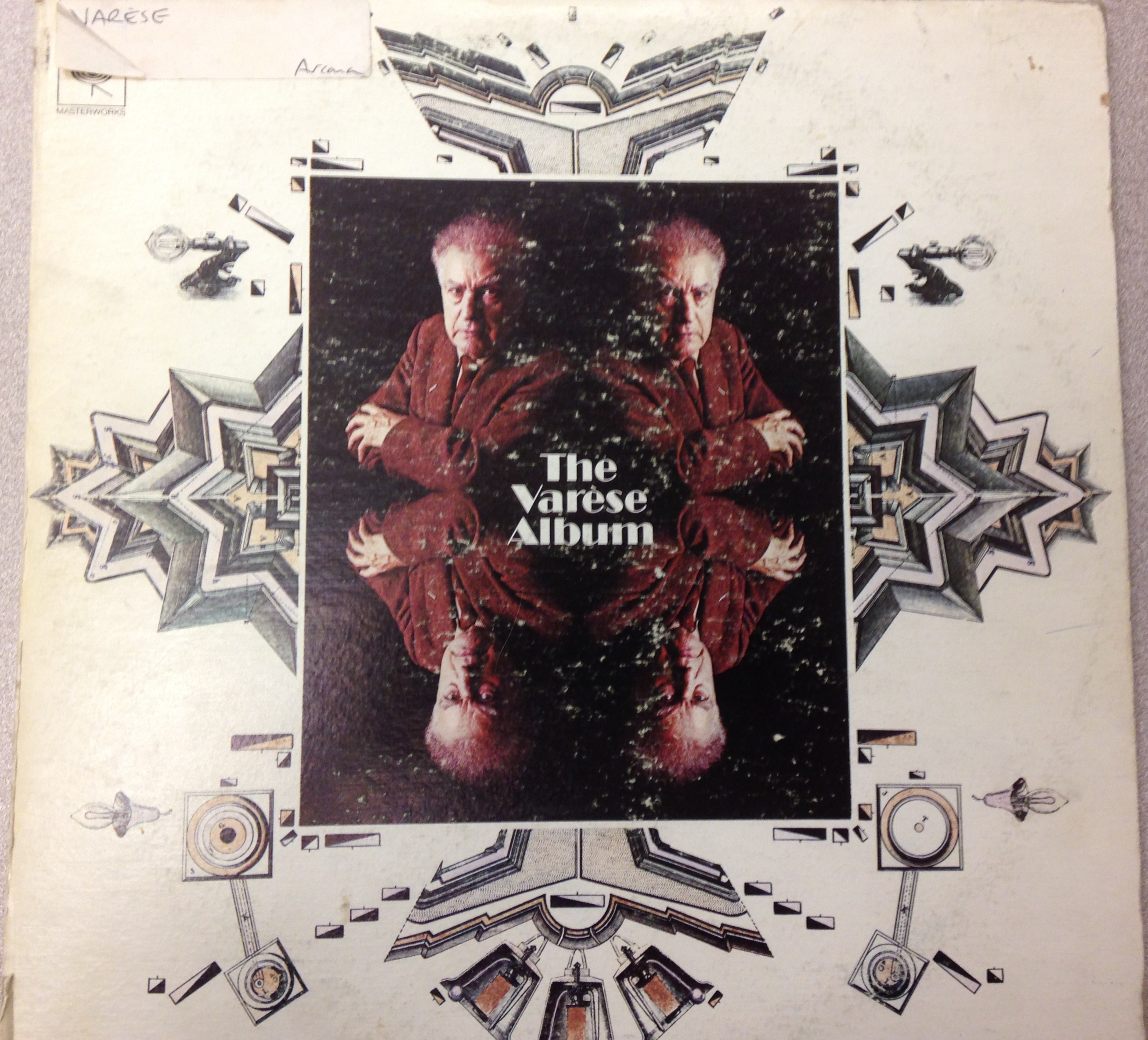
When I presented my idea for the show to the programming director, he was nervous about it – he didn’t want it to be too “academic.” He emphasized that it was important for me to present the music in an unpretentious way…which struck me as pretty much impossible. Pretension is to contemporary classical music what sex is to rock and roll – a quality without which the genre would lose all purpose and meaning. This, by the way, was and remains something I very much love about it. “Arcana,” therefore, appealed to me because it seemed to neutralize the pretension a little by making it almost parodic. That went over well, and I got my Wednesday evening time slot starting in spring 1992. I continued doing the show until I graduated in 1995.
By 1993 the show had a bit of a reputation. I had Milton Babbitt on twice, once for a show devoted to his work, and once for a show on Schoenberg. I did a couple shows with the composer Kevin Volans, one on his own work and one on Stockhausen, who he’d studied with; Phill Niblock and Walter Zimmermann also came by at various points.
One of the things that surprised me most was how much the show appealed to users of hallucinogens. After I’d been on for a year or so, I was getting lots of calls from people who had taken one substance or another, and would describe what they were seeing as the music went on. There were also, of course, plenty of angry listeners who just hated it — my favorite was a guy, voice dripping with disdain, who called during Pierre Henry’s “Variations Pour une Porte et un Soupir,” a forty-five minute piece based entirely on the sound of a squeaky door and a breath (manipulated in the studio of course), and said “you’ve been playing the sound of a door opening and closing for thirty minutes. Could you tell the MORON spinning records to play some MUUUUSIC?” We nearly made that into a promo…but I was worried about the legal ramifications of using a recording of someone’s voice without their consent.
Instead of being the sum total of my involvement with WPRB, as I’d initially expected it to be, my peculiar specialty show ended up drawing me much deeper into the life of the station. WPRB is a classic instance of the “volunteer labor problem” – with only social pressure, and no financial incentives, it can be difficult to get large numbers of people to commit to doing regular work for the organization, particularly when the work that needs to be done is somehow inconvenient. As one of the few people willing to get up with the chickens for the sake of classical music, therefore, I was quickly tapped to be classical programming director. After a year of doing that, I managed to find a successor; I became jazz director in 1993-1994 because there was nobody else to do it that year. Of course, you can’t run the programming of a format you know nothing about – so I sought the help of an array of very hip and generous friends, including jazz DJs Greg Lyon GS and Jeff Atteberry ’95, as well as Rock Director and eventual Program Director Tim O’Reilly ’95. They showed me an entirely new world of music. I still remember the thrill of discovery in the jazz LP stacks – I’ll never forget Jeff, his face glowing with wonder, using the monitors in studio C to play me his latest find, the tune “Gazzeloni” from Eric Dolphy’s magnificent album Out to Lunch. He’d found the station’s copy of the Blue Note LP, well-loved but still playable.
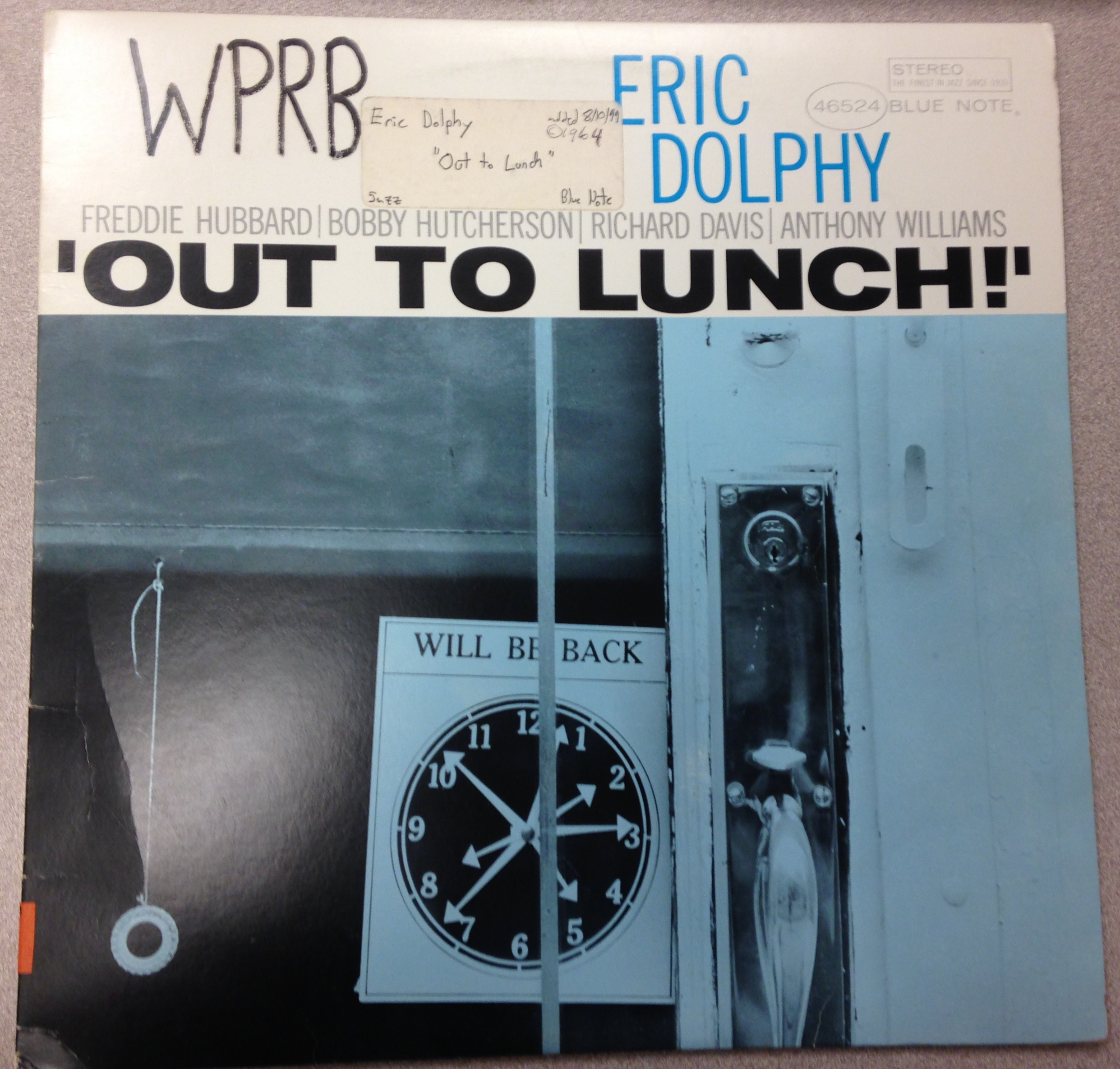
All that service on the programming staff led Sean Murphy ’94 to ask me to become station manager for the 1994-1995 academic year. At that time – as I hope is still true – the incoming station manager and program director received small stipends to spend the summer on campus running the station. A group of us threw ourselves into keeping the station going – Jeff Atteberry ’95, Guy Austrian ’96, Mike Harrison ’95, and Lisa Marie Priddy ’95, among others. I logged hour after hour of classical, jazz, and even rock – though when I did so I “flew deaf,” navigating exclusively by the check-mark and tempo designations on the album review labels. The vastly knowledgeable Jen Moyse ’94, out of an excess of charity, pronounced the shows “interesting,” though I’m afraid in reality the best thing that could be said about them was that they filled up the necessary time.
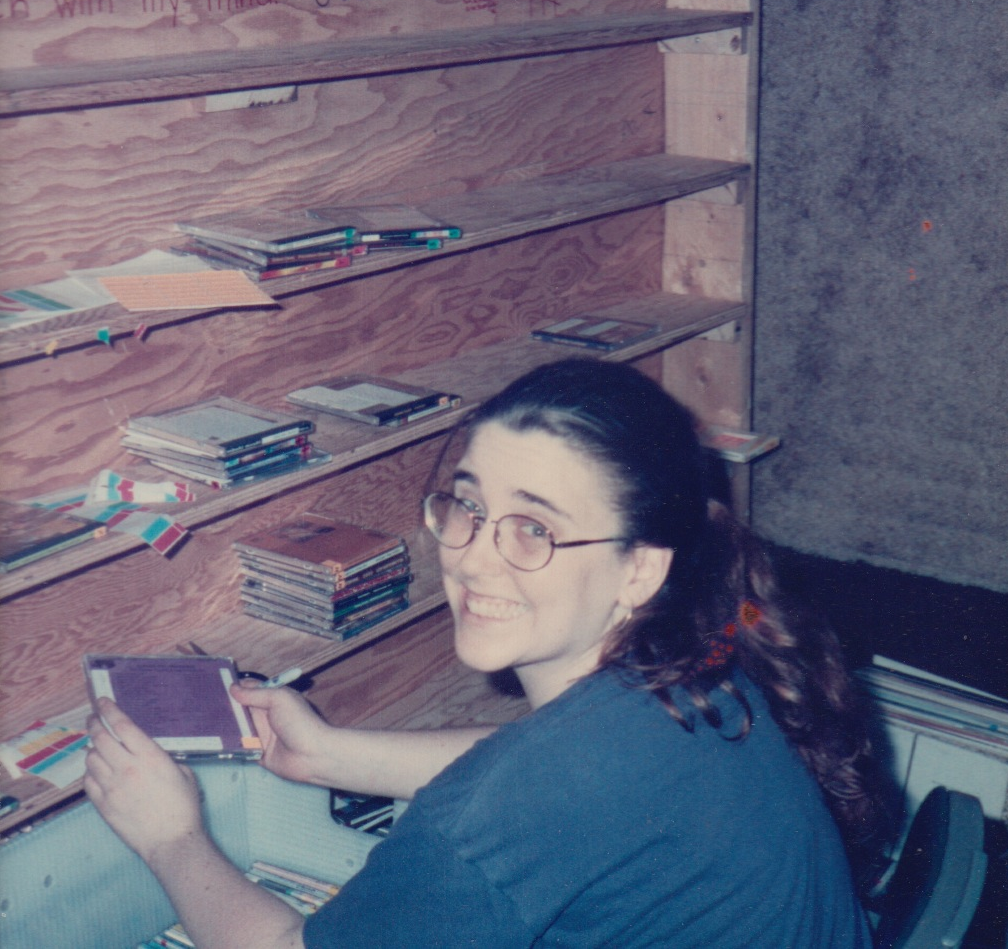
(Lisa Marie Priddy ’95)
The big project of summer 1994 was to make studio C broadcast-worthy, so it could function as a substitute during the renovation of studio A, which was completed in fall 1995. For the most part, the construction, installation of the equipment, and the wiring was done by Aaron Madsen ’94 and his successor as tech director, Jon Solera (Snitow) ’97. Looking back on it, actually, it’s pretty amazing that two guys in their early twenties were able to plan, build and wire a fully-functional broadcast studio on their own, as an extra-curricular activity alongside their EE coursework – for free. There was a lot of work that summer in the studio, cleaning things up, building things, moving things from one place to another. The weather was swelteringly hot everywhere, but worst of all in studio C, because unlike studio A, it had no ventilation system. One of the two photos I have of studio C under construction that summer gives a sense of the room’s sauna-like atmosphere. I still sweat just thinking about it. For what it’s worth, that summer also gave me my first and I hope only experience of moderately serious electric shock – which doubled my appreciation for Jon and his know-how.
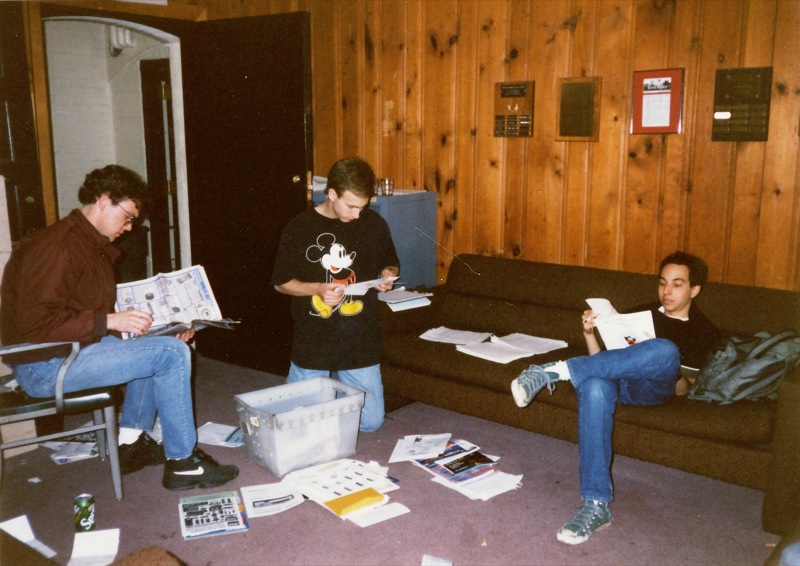
(L-R: Aaron Madsen ’94, Jon Solera (Snitow) ’97, Guy Austrian ’96. WPRB’s Holder Hall lobby)
The winter of 1994, I had my baptism by fire as Station Manager. We had just switched from the old transmitter on Holder Tower to the place where I gather it’s currently located (I’m unfortunately blanking on the name). Everything was going smoothly until a huge ice storm hit, at which point a falling icicle hit the one spot on the new transmitter that wasn’t protected by some sort of shield. The new transmitter was completely knocked out, and our engineering consultant, Walt Gradzky, had no idea when it would be back on line. That meant switching back to the old transmitter in Holder, which was a temperamental beast – like an old steam engine or an unrestored Model T, even under the best of circumstances, it required special gentling in order to work properly. You had to turn it on in just the right way, in order to make sure it wouldn’t get irritable. The post ice-storm weather was just too cold for it, and the station was entirely off the air for what I remember as at least a few days, which I spent frantically coordinating things with Walt, Sean Murphy ’94, and anyone else who would listen to my panicked raving.
Somehow, though, we managed to get the Holder transmitter back on line, then the main transmitter fixed. The station made it through the year without a serious FCC sanction or a financial crisis – the latter largely because of our amazing sales manager (and my successor as station manager), Josh Klevens ’96, who proved his ability to sell ice-cubes to Eskimos by persuading a whole array of New Hope boutiques to buy spots at all hours, whatever the music.
Looking back on it, my time at WPRB taught me a huge amount about responsibility, teamwork, the value of friendship, my own strengths and weaknesses, and – incidentally – radio. I’m astounded and delighted that an institution which makes a practice of giving so much responsibility to inexperienced men and women in their early 20s has succeeded in lasting this long. To be honest, at least going by my own experience, it’s something of a miracle – one that I hope will continue long into the future! -John Monroe
